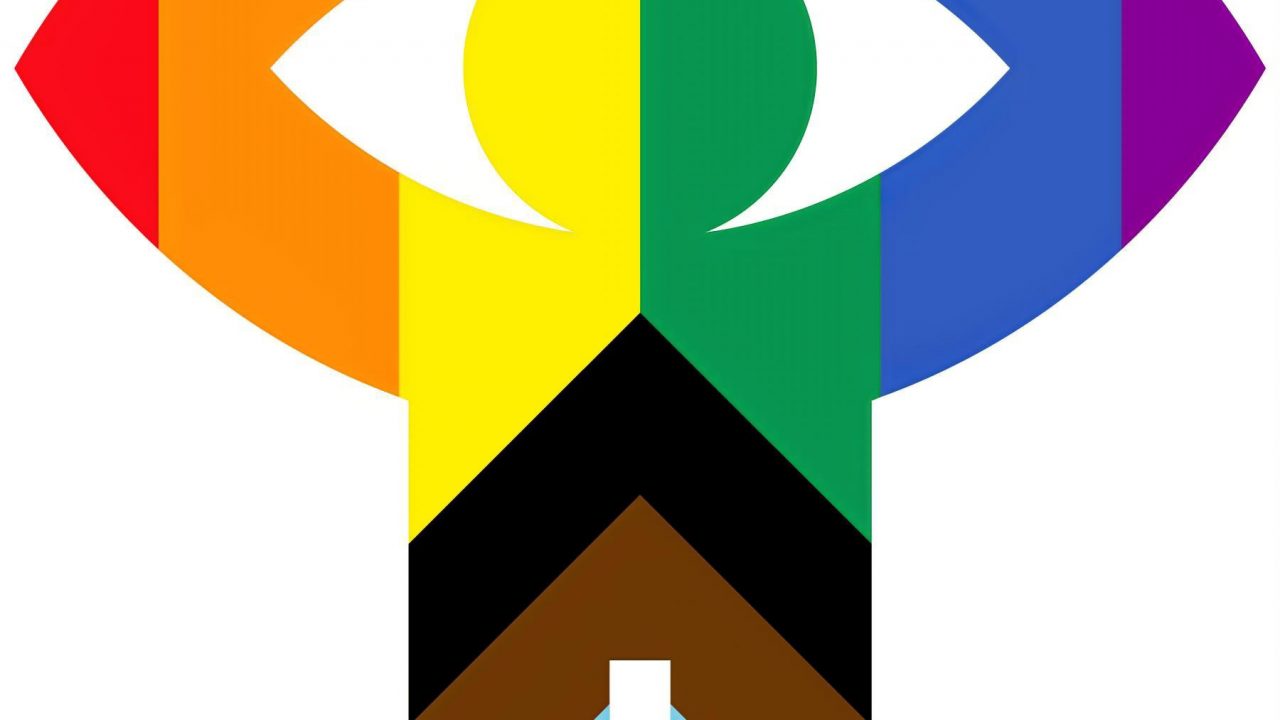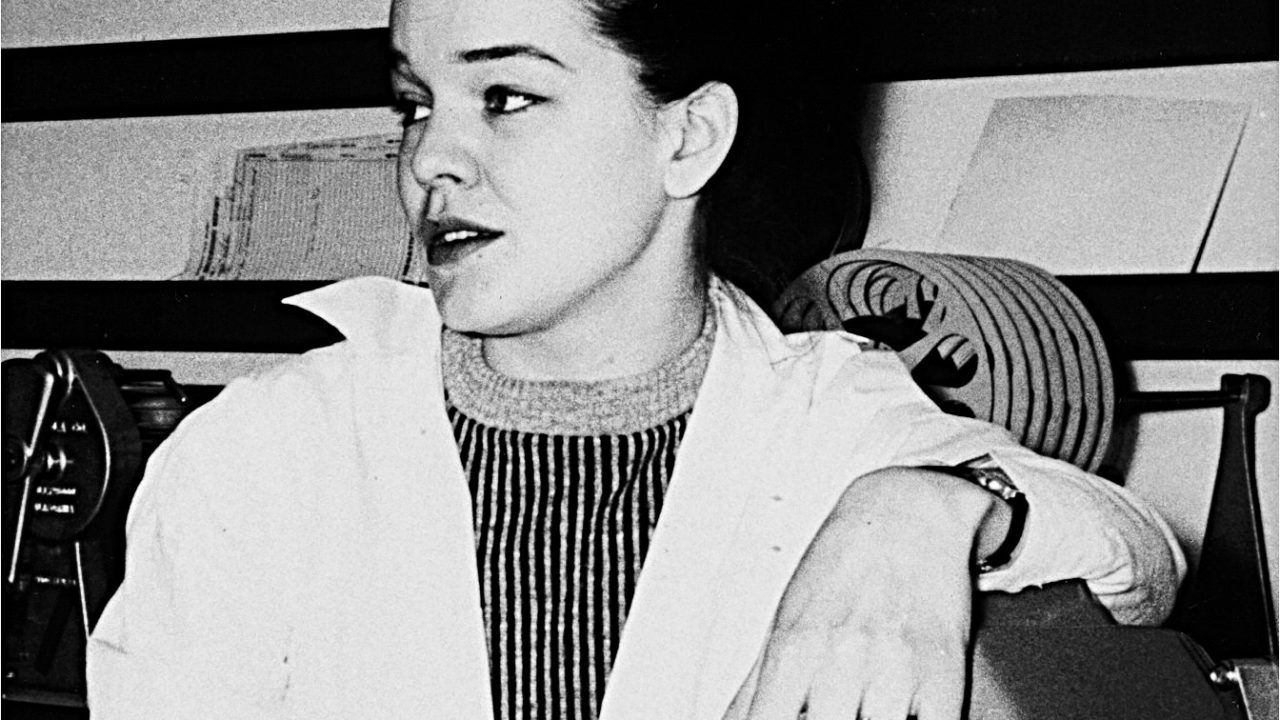
Queer Cinema at the NFB: Seminal Films Directed by Women
Queer Cinema at the NFB: Seminal Films Directed by Women
At the NFB, women have been directing films about Queer lives, perspectives and experiences since the late 1970s. To celebrate this year’s Public Service Pride Week (PSPW), let’s dive into a few of these 2SLGBTQIA+ milestones in our collection.
Before we begin exploring this piece of film history, I invite you to watch a recent release: A Mother Apart (2024), an electrifying co-production featuring world-renowned Jamaican-born spoken-word poet and 2SLGBTQIA+ activist Staceyann Chin. As Chin noted, she chose to work with filmmaker Laurie Townshend rather than a Hollywood director because Townshend approached her with such honesty.[i] The result is this raw, fast-paced documentary that blends Chin’s powerful life story with performance clips, revealing her multifaceted identity as daughter, mother and artist. What makes this one of my favourite new NFB releases is its innovative hybrid style: a healing journey woven from documentary footage, animation, personal photographs and even lo-fi video—a bold mix of elements that makes for an instant classic in our collection.
A Mother Apart, Laurie Townshend, provided by the National Film Board of Canada
Feminist Perceptions: Equal Rights in the ’70s
Directed by Luce Guilbeault, Nicole Brossard and Margaret Wescott, Some American Feminists (1977) is a striking archival mosaic—part interview series, part newsreel—that contextualizes the American feminist movement within its broader historical struggle. The film amplifies the voices of foundational figures like Betty Friedan and Kate Millett, alongside lesser known but equally vital artists and scholars, as they dissect the era’s most urgent battles: workplace inequality, reproductive rights and the politicization of domestic life. Yet midway through, the lens shifts sharply toward the lesbian community’s specific marginalization, documenting their fight for visibility in a movement still grappling with its own internal biases.
Some American Feminists, Luce Guilbeault, Nicole Brossard & Margaret Wescott, provided by the National Film Board of Canada
Nearly five decades later, the film’s themes resonate with unsettling clarity. The interviews feel less like historical artifacts and more like fractured reflections of today—proof that many of these women’s struggles, particularly for 2SLGBTQIA+ communities, remain unresolved. What was once a rallying cry now doubles as a reminder: progress is cyclical, and some battles demand to be fought anew.
Lesbian Identity in the ’80s: The Recovery Series
A groundbreaking work of lesbian cinema, Moira Simpson’s Lorri: The Recovery Series (1985) was recently unearthed in our vaults and is being re-released on NFB.ca for Public Service Pride Week. As one of the earliest films to centre entirely on a lesbian’s lived experience, it remains an important time capsule of Queer resilience.
Lorri: The Recovery Series, Moira Simpson, provided by the National Film Board of Canada
Through intimate testimony, the film follows Lorri’s harrowing journey of self-reclamation in the 1980s, a time when living openly as a lesbian meant battling both personal demons and societal rejection. The camera captures her experience of hitting rock bottom: hospitalized, suicidal and wrestling with alcoholism… and yet, determined to rebuild. “I’m still gathering tools,” she reflects five years later, “so no pain will ever drive me back to the bottle.” More than a recovery narrative, it’s a radical act of visibility in the ’80s—one that still resonates today as part of the NFB’s vital (and still underseen) series on women overcoming addiction.
Unashamed Stories: Forbidden Love in the ’90s
A perennial favourite in our collection and an undisputed NFB classic, Forbidden Love: The Unashamed Stories of Lesbian Lives (1992) by Aerlyn Weissman and Lynne Fernie is one of our most-viewed documentaries, year after year. This groundbreaking work excavates the vibrant, often underground world of Canadian Queer women in the mid-20th century, blending contemporary interviews with archival footage and a stylized pulp fiction narrative. The women’s stories—by turns hilarious, rebellious and poignant—chronicle their daring quests to find community in urban spaces that were both sanctuary and battleground.
Forbidden Love: The Unashamed Stories of Lesbian Lives, Aerlyn Weissman & Lynne Fernie, provided by the National Film Board of Canada
Forbidden Love also serves as an act of cultural resurrection, breathing life into stories that were nearly erased. Through its ingenious mix of oral history, archival material and pulp-novel homage, the film recounts lesbian experiences and celebrates them with unapologetic joy. Almost 35 years after its release, its power to move, educate and inspire remains undiminished, standing as both an invaluable historical record and a testament to the enduring spirit of Queer resistance.
A Safe Space within the NFB Collection: Dozens of Queer Films Directed by Women
The National Film Board has been a pioneer in Queer cinema, chronicling 2SLGBTQIA+ lives since the 1960s—decades before most national cinemas around the world acknowledged these stories. For the 2SLGBTQIA+ community, Pride Season begins on June 28—a historic date marking the Stonewall Riots—and extends through July, culminating in Public Service Pride Week in mid-August in Canada. The NFB is proudly celebrating PSPW this year by spotlighting these groundbreaking films by women, honouring the resilience, diversity and artistry of Queer communities during Pride Season and beyond.
Stay tuned for upcoming posts on 2SLGBTQIA+ cinema at the NFB. For now, we invite you to join us in marking PSPW by watching the entire selection of films on our Films for Pride channel—a curated collection of stories that illuminate the spectrum of Queer identities, families and communities across Canada and worldwide. The channel includes more than a dozen titles exploring themes related to lesbian identity and experience; from intimate personal journeys to bold collective struggles, these films amplify voices too often unheard, like the ones featured in this blog post, as well as recent classics like I Like Girls (2016) or newly added titles like She and I (2008) and Safe Among Stars (2019) by non-binary filmmaker Jess X. Snow, about a Queer Chinese-American woman who develops the ability to teleport while struggling to explain to her immigrant mother why she left school.
Safe Among Stars, Jess X. Snow, provided by the National Film Board of Canada
Stay tuned, happy viewing—and happy Public Service Pride Week!
Header Image by Philippe Panneton
[i] https://ca.news.yahoo.com/a-mother-apart-staceyann-chins-beautiful-exploration-of-being-a-mother-when-her-own-mother-abandoned-her-103018533.html



